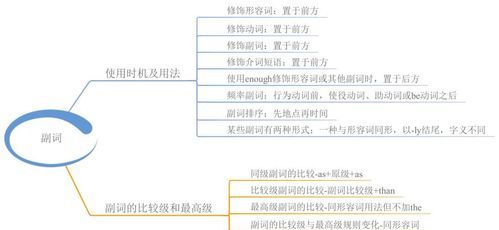本文目录
英语语法中的重点难点是什么
英语语法中的重点难点
导语:英语的语法很复杂,有很多知识点是很难掌握的,下面是我收集整理的英语语法中的重点难点,欢迎参考!

主谓一致常考难题:
1. Five minutes is enough to do this exercise.
Each boy and each girl wants to serve the people in future.
More than one student has seen the film.
Many a ship has been damaged in the storm.
More members than one are against your plan.
一些有两个部分构成的名词表示衣物或工具作主语时, 谓语通常用复数形式:glasses, clothes, trousers, shoes, compasses, chopsticks, scissors等。
但如果主语用a kind of , a pair of , a series of等加名词构成时, 谓语动词一般用单数形式。A pair of shoes was on the desk.
并列主语如果指的是同一个人、同一事物或同一概念时, 谓语动词用单数形式, 这时and后面的名词没有冠词。例如:
Truth and honesty is the best policy.
The girl's teacher and friend is a young doctor.
To love and to be loved is the great happiness.
Going to bed early and getting up early is a good habit.
A knife and fork is on the table.
当主语后面跟有as well as, as much as , no less than, along with, with, like, rather than, together with, but, except, besides, including, in addition to等引导的词组时, 其谓语动词的单、复数按主语的单、复数而定。例如:
The teacher as well as the students was excited.
The room with its furniture was rented.
2. A (great) number of修饰可数复数名词, 谓语动词用复数; a great deal of,a large amount of 修饰不可数名词, 其短语作主语时, 谓语动词用单数。
3. 关系代词who, that, which等在定语从句中作主语时, 其谓语动词的数应与句中先行词的数一致。例如:
Those who want to go please sign your names here.
Some of the energy that is used by man comes from the sun.
4. 季节、月份、星期、节日、假日、一日三餐、学科名称,球类、棋类名词名称前一般不加冠词。
1/2 one(a) half 1/4 one(a) quarter
5. 形容词的顺序:
系动词be,grow,get,become,feel,appear,prove,seem,look,keep,smell,taste,sound,turn,remain限定词+数量形容词(序数词在前,基数词在后)+性状形容词+大小、长短、高低等形体+新旧+颜色+国藉+材料
Those three beautiful large square old brown wood table
6. 某些以a-开首的形容词例如:afraid,alike,alone,asleep,awake, alive 等只能作表语,不能作定语。
某些以-ly结尾的词是形容词而不是副词:friendly,lively, lovely,lonely,likely,deadly,silly,orderly, timely等。
7.bad/ill,badly worse worst little less least表示一方不及另一方时,用“less+原级+than”的结构表示:This room is less beautiful than that one.
表示一方超过另一方的程度或数量时,可在比较级前加表示程度的状语,如:even,a lot,a bit,a little,still,much,far, yet, by far等修饰:He works even harder than before.
注意:by far 通常用于强调最高级。用于比较级时,一般放在比较级的后面, 如放在前面,应在二者中间加“the”。He is taller by far than his brother.
He is by far the taller of the two brothers.
某些以-or结尾的形容词进行比较时,用to代替than。superior,junior,senior等。He is superior to Mr Wang in mathematics.
在比较从句中为了避免重复通常用that(those),one(ones)代替前面出现的名词。that指物,one既可指人,也可指物。that可代替可数名词单数和不可数名词,而one只能代替可数名词。例如:
The book on the table is more interesting than that on the desk.
A box made of iron is stronger than one made of wood.
8. 表示倍数的比较级有如下几种句型:
A is three (four,etc.) times the size (height, length, width,etc) of B.
The new building is four times the size (the height) of the old one.
这座新楼是那座旧楼的四倍大(四倍高)。[高三倍]
A is three (four, etc.) times as big (high, long, wide, etc.) as B.
Asia is four times as large as Europe.亚洲是欧洲的四倍大。
A is three (four,etc.) times bigger (higher, longer, wider) than B.
例如:Your school is three times bigger than ours.
你们的学校比我们的学校大三倍。表示两倍可以用 twice 或 double。
9. 表示“最高程度”的形容词,如excellent,extreme,perfect等,没有最高级,也不能用比较级。
如果复数名词前有many、few,不可数名词前有much、little等表示量的形容词时,该用so而不用such。如:
I've had so many falls that I'm black and blue all over.
Mr White got so little money a month that he could hardly keep body andsoul together.
但little不表示数量而表示“小”的意思时,仍用such。如:
They are such little children that the they cannot clean the house by themselves.
10. almost与nearly
在very, pretty, not后用nearly, 不用almost。例如:I'm not nearly ready.
在any, no, none, never前用almost, 不用nearly。例如:I almost never see her.
11. need 表示“需要”或“必须”,作情态动词时,仅用于否定句或疑问句中。在肯定句中一般用must, have to, ought to或should 代替。例如:
You needn't come so early.
Need I finish the work today? --Yes, you must.
注意:needn't have done“表示本来不必做某事而实际上做了某事”。例如:You needn't have waited for me.
“should have done”表示应该做到而实际上没有做到。
You should have started earlier.
“ought to have done”表示过去应做某事而实际未做。
You ought to have helped him (but you didn't)
书报的标题,小说等情节介绍常用一般现在时。
表示感觉,愿望和状态的某些动词如have, be, hear, see, like等词一般不用进行时。
有些动词形式上是主动结构,但表示被动的意思。常见的有可和 well, easily 等副词连用的不及物动词sell,wash,write,read,clean,cook等。例如:
The cloth washes well.这布很经洗。
The new product sells well.这新产品很畅销。
The pen writes well.这支笔很好写。
在动词 arrange,command, demand, desire,insist, order,propose, request, require, suggest等后面的宾语从句中用“(should)+ 动词原形”(虚拟语气)例如:
We suggested that we (should) have a meeting.
We insisted that they (should) go with us.
The doctor ordered that she (should) stay in bed for a few days.
He demanded that we (should) start right away.
作advice,idea,order,demand,plan,proposal,suggestion,request等名词的表语从句和同位语从句,其谓语动词要用虚拟语气的结构“(should)+动词原形”。例如:We all agreed to his suggestion that we(should) go to Beijing for sightseeing.
My idea is that we (should) do exercises first.
在feel, hear, notice, observe, see, watch, have, let, make等词后的补足语中,不定式不带to。但是这些句子如果变成被动结构时,就必须带to。例如:I often hear him sing the song.
He is often heard to sing the song.
注意:不定式动词在介词but, except, besides后面时,如果这些介词之前有行
为动词do的各种形式,那么,这些介词后的`不定式不带to,否则要带to.如:
She could do nothing but cry.
What do you like to do besides swim?
I have no choice but to go.
作定语的不定式如果是不及物动词,或者不定式所修饰的名词或代词是不定式动作的地点、工具等,不定式后面须有相应的介词。例如:He is looking for a room to live in. There is nothing to worry about.
Please give me a knife to cut with.
There / It is no use/ good/ not any use/ good/ useless doing sth.
动词后可以用动名词作宾语,但不能用不定式:
admit,appreciate, avoid, consider, delay, enjoy, escape, excuse, feel like, finish, forgive, give up, imagine, include, keep, mention,mind,miss,practise, put off, resist, risk, suggest, can't help, can't stand(无法忍受)等。
I tried not to go there.(我设法不去那里。)
I tried doing it again.(我试着又干了一次。)]
mean to do 有意... mean doing意味着...
I mean to come early today.(我打算今天早些来。)
Missing the train means waiting for another hour.
(误了这趟火车意味着再等一个小时。)
allow, advise, forbid, permit
We don't allow smoking here. We don't allow students to smoke.
动词need,require,want作“需要”解,其后跟动词作它的宾语时,若表示的含义是被动的,必须用动名词,或不定式的被动式。例如:
The window needs(requires, wants)cleaning(to be cleaned).
在短语devote to, look forward to, pay attention to, stick to, be used to, object to,thank you for, excuse me for 等后的动词也必须用动名词形式:I look forward to hearing from you soon.
Badly polluted, the water cannot be drunk.(原因)
Being written in haste, the composition is full of mistakes.
(原因,强调写的过程,故应用现在分词一般被动式)
Having been deserted by his guide, he couldn't find his way through the jungle.(为了强调已完成的动作)
Asked to stay, I couldn't very well refuse.
这里 asked 可能意味着 having been asked, 也可能意味着when/since I was asked, 但用了 having been asked 就不会有歧义。
下面句中过去分词表示的时间与谓语动词所表示的时间相同,所以不能代之以强调先于谓语动词的现在分词完成被动式。例如:
Covered with confusion, I left the room.我很窘地离开了房间。
United, we stand; divided, we fall. 团结则存,分裂则亡。
He used to live in London, use(d)n't he /didn't he?
There used to be a cinema here before the war, use(d)n't there /didn't there?
Such things ought not to be allowed, ought they?
He ought to be punished, oughtn't he?
但在正式文体中,用ought we not形式。例如:
We ought to go, ought we not?或We ought to go ,should we not?
含有情态动词must的句子表示推则,作“想必”解时,疑问部分不可用mustn't。若前句强调对现在情况的推测,疑问部分用aren't(isn't)十主语,例如:You must be tired,aren't you?若陈述部分的must表示“有必要”时,附加疑问句部分则用needn't。例如:You must go home right now, needn't you?
当mustn't 表示禁止时,附加疑问部分一般用must。如:
You mustn't walk on grass, must you?
前句谓语动词是must have+过去分词时,若前句强调对过去情况的推测(一般有过去时间状语),疑问部分的谓语动词用didn't+主语;若前句强调动作的完成,疑问部分的谓语动词用haven't(hasn't)+主语, 例如:
He must have met her yesterday, didn't he?
You must have seen the film, haven't you?
陈述句谓语部分出现否定词缀时(前缀或后缀),疑问部分仍用否定结构。例如:He is unfit for his office, isn't he?
如果陈述部分包含有no, never, hardly, seldom, few, little,nowhere, nothing等否定或半否定词时,疑问部分用肯定形式。例如:He is hardly 14 years old,is he?
如果陈述部分的主语为everyone,someone,no one等不定代词,其疑问部分的主语可用he,也可用they。
Everyone knows his job, doesn't he?
Everyone knows their job,don't they?
No one was hurt,were they?
I'm late, aren't I?
One can't be too careful,can one(you)?
Have a cup of tea, will you?
Let's go there,shall we? Let us go there,will you?
同位语从句跟在名词后面,进一步说明该名词的具体内容。引导同位语从句的名词主要有fact, news, promise, idea, truth等。连接词用that (不用which)及连接副词how, when, where, why等。例如:
His delay is due to the fact that the car went wrong halfway.
The news that our team has won the match is true.
She asked the reason why there was a delay.
关联词只能用whether不能用if表示“是否”的情况如下:
A)在表语从句和同位语从句中。例如:
The question is whether the film is worth seeing.
The news whether our team has won the match is unknown.
B)在主语从句中,只有用it作形式主语时,whether和if都能引导主语从句,否则,也只能用whether。例如:
Whether we shall attend the meeting hasn't been decided yet.
It hasn't been decided whether(if)we shall attend the meeting.
C)在介词之后。(介词往往可以省略)例如:
It all depends (on) whether they will support us.
D)后面直接跟动词不定式时。
He doesn't know whether to stay or not.
E)后面紧接or not 时。
We didn't know whether or not she was ready.
F)引导让步状语从句,只能用whether。
Whether you like it or not, you must do it well.
G)用if会引起歧义时。例如:Please let me know if you like it.
该句有两个意思:“请告诉我你是否喜欢”。
或“如果你喜欢,请告诉我。”用了whether就可以避免。
在下面几种情况下必须用“that”引导定语从句:
1)先行词是不定代词:all,few,little, much,something,nothing,anything等。All that we have to do is to practise every day.
2)先行词被序数词或形容词最高级所修饰。
The first lesson that I learned will never be forgotten.
3)先行词被all,any,every, each, few,little,no,some, 等修饰。
I have read all the book (that) you gave me.
4)先行词被 the only, the very, the same, the last 修饰时。
He is the only person that I want to talk to.
5)先行词既有人又有物时。They talked of things and persons that they remembered in the school.
先行词是表示地点时,要根据从句的谓语动词是及物的还是不及物的。如果是及物的就用that(which),否则用where。
This is the house where he lived last year.
This is the house that (which) he visited last year.
用no sooner…than和hardly…when引导的从句表示“刚……就……”。主句中的动词一般用过去完成时,从句用过去时;而且主句一般倒装,把助动词had提到前面。例如:Hardly had I entered the room when I heard a loud noise.
代词作主语时,主谓语序不变。Here it is. Here he comes.
当句首状语为表示地点的介词词组时也常常引起全部倒装。
South of the city lies a big steel factory.
From the valley came a frightening sound.
表语置于句首时,倒装结构为“表语+连系动词+主语”。
Present at the meeting were Professor White,Professor Smith and many other guests.
Gone are the days when they could do what they liked to the Chinese people.
Among the goods are Christmas trees, flowers, candles and toys.
He has been to Beijing. So have I.
Li Wei can't answer the question. Neither can I.
部分倒装
用于省略if的虚拟条件状语从句。Had you reviewed your lessons,you might have passed the examination.
3.用于“形容词(或名词、动词)+as(though)引导的让步状语从句中。例如:Pretty as she is ,she is not clever. Try as he would, he might fail again.
如果从句的表语是名词,其名词前不加任何冠词。
Child as he was, he had to make a living.
用于no sooner…than…,hardly…when和not until的句型中。Not until the teacher came did he finish his homework.
用于never,hardly,seldom,scarcely, barely, little,often,at no time,not only,not once等词开头的句子。
Never shall I do this again. Little did he know who the woman was.
6.用于以only开头的句子(only修饰副词,介词短语或状语从句时)。
Only in this way can you master English.
Only when he told me did I realize what trouble he was in.
如果only后面的词组不是状语,则不用倒装。
Only Wang Ling knows this.
;英语语法有什么
一:名词的数与格 掌握规则名词和不规则名词变复数的规律
二:冠词的用法 ... 掌握定冠词的用法
三:冠词的用法 ... 掌握不定冠词和零冠词的用法
四:定语从句 (... 掌握限制性定语从句中关系代词和关系副词的基本用... 五:定语从句(2) 掌握限制性定语从句中关系代词和关系副词的基本用...
六:主谓一致 掌握主谓一致的原则,形式一致和内容一致的处理方...
七:名词性从句(... 掌握:一、引导名词性从句的连接词。二、 主语从...
八:名词性从句(... 掌握:一、引导名词性从句的连接词。二、 主语从...
九:非谓语动词(... 掌握非谓语动词的定义及构成 、功能及用法 和注... 十:非谓语动词(... 掌握非谓语动词的定义及构成 、功能及用法 和注...
十一:倒装与省略 掌握完全倒装和部分倒装的规律和用法,省略的作用...
十二:虚拟语气 虚拟语气的概念、非真实条件句与真实条件句的区...
十三:情态动词 ... 掌握情态动词的定义、分类、位置、 特点、 用法...
十四:情态动词(... 掌握情态动词的定义、分类、位置、 特点、 用法...
十五:状语从句 学会各种状语从句的用法。
希望能帮到你
英语教师高中团

初中英语语法知识点总结归纳
初中英语语法重难点总结
初中英语语法之双重所有格的用法大全
【—语法之双重所有格的用法大全】双重所有格用法上有什么讲究的呢?下面就是老师为同学们带来的对双重所有格的用法的介绍,供同学们学习参考。

物主代词不可与 a, an, this, that, these, those, some, any, several, no, each, every, such, another, which等词一起前置,修饰一个名词,而必须用双重所有格。
公式为:
a, an, this, that +名词+of +名词性物主代词。如:
a friend of mine.
each brother of his.
上述对双重所有格的'用法同学们是否都理解了呢?如果还有什么不懂的可以参考哦!
初中英语学习方法关于“穿”的英语单词辨析总结
【—关于“穿”的英语单词辨析总结】wear, dress, put on都有“穿”意思。下文是老师为同学们带来的关于“穿”的英语单词辨析的介绍,供同学们学习参考。希望对同学们有帮助。
wear, dress, put on
这些动词或词组均含“穿衣,穿”之意。
wear : 最常用词,指穿衣、鞋袜或戴手套等,侧重穿戴的状态。
dress : 普通用词,指给自己或他人穿衣。既表动作又可表状态。
put on : 普通用语,指把衣服、鞋袜、帽子、手套等戴上去,侧重穿戴的动作。
wedding, marriage
这两个名词均含“结婚”之意。
wedding : 普通用词,指婚礼上的结婚仪式以及随之而来的庆祝活动。
marriage : 普通用词,含义广,指婚烟关系及婚后生活,也可指结婚仪式。
初中英语youth的学习方法
【— youth的】youth我们在使用的时候要注意它所表示的是否可数,及其它的一些相关的用法介绍。
注意以下用法及其可数性:
1. 表示“青春”,是不可数名词。如:
She lost (kept) her youth. 她青春不再(青春依旧)。
2. 表示“青年时代”、“年轻时候”,是不可数名词。如:
I often went there in my youth. 我小时候常去那儿。
At the party I met a friend of my youth. 在晚会上我遇到了一个我年轻时候的朋友。
3. 表示“青年人”,有两种用法:
(1) 用作个体名词(可数),主要用来指男青年而不指女青年。如:
As a youth he showed little promise. 他这个小伙子看不出有什么出息。
Several youths and girls were standing at street corner. 有几个小伙子和姑娘站在街道拐角处。
注:这样用的 youth 有时带有贬义。如:
The police are looking for five youths (=five people). 警察正在找五个青年人。
(2) 用作集合名词,表整体(可指男女青年),用作主语时谓语可用单数或复数。如:
The youth of today is [are] fond of dancing. 现在的年青人都喜欢跳舞。
The youth of the country is [are] ready to fight. 全国的青年都准备战斗。
初中英语学习对look的方法总结
Look at the map. 看地图。
Look可用作不及物动词、及物动词和连系动词。现将其用法归纳如下:
一、用作不及物动词,意为“看,望,瞧”。
1)单独使用时,后不跟介词。如:
I looked but saw nothing. 我看了,但什么也没看见。
Look! Here comes the bus. 瞧!汽车来了。
Look before you leap. 三思而后行。
2)和at连用。如:
The teacher is looking seriously at us. 老师正严肃地看着我们。
Look at these pictures. How beautiful they are! 看这些画,它们是多么漂亮啊!
3)和其它某些介词或副词连用:
a、look after 照看,照料。如:
He is old enough to look after himself. 他年龄足够大,能照看自己。
b、look for 寻找。如:
I looked for you just now, but I didn’t find you. 刚才我到处找你,但没有找到。
c、look around 四下环顾,到处寻找。如:
He looked around but he saw nobody. 他四下环顾,但什么人也没看到。
d、look back on回想,回顾。如:
They often look back on the days they spent together. 他们常回顾他们在一起度过的日子。
e、look down on看不起。如:
Don’t look down on others.不要看不起别人。
f、look forward to 盼望。如:
We are looking forward to seeing you again. 我们盼望再见到你。
g、look into朝……里面看。如:
He looked into the box, but he saw nothing. 他朝箱子里面看了看,但没看到什么。
;学英语的难点在哪里
我认为英语难点主要在以下几点:
1、单词
虽然大多数单词都是按发音来拼写的,但仍有些单词很长而且无法根据发音记忆。
2、固定搭配
英语中有很多固定搭配,有一些根本没有原因,就得这么用,所以这又是个难点。
3、习语和俚语
这些东西根本没有任何可以从字面上翻译的东西,而英语学多了很容易遇到这些东西,这也是个难点
4、发音
我们学英语学了很多单词,其实有很多我们的发音并不准确,这需要在学单词时就注意,是个积累的过程

以上就是关于英语语法的难点有哪些,英语语法中的重点难点是什么的全部内容,以及英语语法的难点有哪些 的相关内容,希望能够帮到您。

